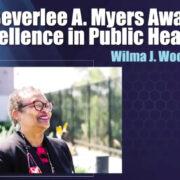In this more health-conscious era, eggs, a very popular item in most any breakfast menus around the world, have been a controversial food item because of its high cholesterol content.
Clinical reviews in various medical journals around the world the past five decades have pointed out the danger of dietary cholesterol for those at risk of developing cardiovascular diseases, like heart attack and stroke, metabolic illness such as diabetes, and even cancer. Most of these studies have considered the egg yolk as the worst offender when it comes to cholesterol.
Depending on the size of the egg, it could contain between 125 to 275 mg of cholesterol in its egg yolk. The recommended daily limit for cholesterol intake is 200 mg per day. So, eating two eggs a day will more than exceed the limit by at least 25 per cent And since other foods we eat also contain cholesterol, it is easy to see that adding even one egg a day to our diet will greatly increase our cholesterol intake.
However, it is not cholesterol in the egg yolk per se that is harmful. It is the oxidized cholesterol that is atherogenic (causes hardening of the artery and eventual blockage in the circulation to the heart, brain, abdominal organs, or legs). Oxidation of cholesterol in eggs can be minimized by using less heat in the cooking process. Liquidy soft boiled egg appears to be healthier than hard boiled or fried eggs in any style. When fried, eggs obviously provide higher level of oxidized cholesterol.
Other highly atherogenic food items include saturated fats from milk products, especially butter. Most butter substitutes, margarines, have hydrogenated vegetables oils, which produce unhealthy trans-fatty acids and are very atherogenic like saturated fats. Reading all food labels is a wise practice.
Margarines without trans-fatty acids are available in large grocery stores. While vegetable oils contain N6 fatty acids, fish oil (from Salmon, Mackerel, Non-Albacore Tuna, etc. or fish oil capsules) contains the healthy N3 fatty-acids (Omega-3), which are potent anti-oxidants, anti-inflammatory, anti-clot, and effective in lowering triglyceride, bad cholesterol, and blood pressure, and in preventing irregularity of the heart beat. They slow down arteriosclerosis (hardening of the arteries) and thus, the aging process of the cells in our body.
A corroborative review of several studies involving hundreds of thousands of cases was done by Dr. David Spence, stroke prevention expert at The University of Western Ontario (UWO), Dr. David Jenkins, nutrition expert of the Risk Factor Modification Centre at St. Michael’s Hospital in Toronto, and Dr. Jean Davignon, cholesterol expert of the Clinique de nutrition métabolisme et athérosclérose in Montreal, according to The Medical News Today.
“We wanted to put cholesterol into perspective, as there’s been a widespread misconception developing among the Canadian public and even physicians, that consumption of dietary cholesterol and egg yolks is harmless,” says Dr. Spence, a professor and scientist at the Schulich School of Medicine & Dentistry, Robarts Research Institute. “Much of this has to do with effective egg marketing.”
While two of those large studies reported no harm from egg consumption among healthy people, the authors stated that “in both studies, those who developed diabetes while consuming an egg a day doubled their risk of cardiovascular disease compared to those eating less than an egg a week…the studies also showed a significant increase of new onset diabetes with regular egg consumption.”
The UWO researchers concluded, “There is no question that egg white is classed as a valuable source of high-quality protein. Egg yolks, however, are not something that should be eaten indiscriminately by adults without regard to their global cardiovascular risk, genetic predisposition to heart attacks and overall food habits.”
My Pampanguena grandmother ate eggs, pork, and food fried exclusively in lard, almost everyday. She smoked and chewed betel nut (nga-nga, with lime paste called “apog”) for nearly all her life, and she lived to her early 90s, with normal blood pressure and body weight, no diabetes, or Alzheimer’s. Arthritis was her only problem. Obviously, she had the genetic make-up that protected her, which, statistically speaking, majority of us do not, or may not, have.
But this is just an anecdotal case, one of those isolated cases. This is hardly a scientific reason, much less a reliable justification or excuse for us to indulge in those at least three unhealthy habits she had. For most of us, those would lead to serious ailments and shorten our longevity.
Egg white (egg minus its yellow yolk) is a highly nutritious source of protein in itself. The yummy but unhealthy egg yolk is not really an essential food item, and actually deleterious to those who are at risk of cardiovascular, metabolic, or cancer disorders.
The big question then is: Who, among us, are at high risk for those illnesses? If only science could identify individuals who are at risk of developing high blood pressure, diabetes, heart attack, stroke, cancer, and a host of other diseases when they eat fatty foods, smoke cigarettes, drink alcoholic beverage in excess, and not exercise, then we would know who, among us, may safely consume high cholesterol foods, be sedentary, smoke like a chimney, and/or drink alcohol to our heart’s content the rest of our life, and still be from serious diseases.
Unfortunately, we still do not have such a medical test to address this issue. Therefore, it behooves all of us to be wise, prudent, careful, and indulge in moderation, since we’ve got only one body, one life, no spare, and no back-up.
Health is indeed priceless, and life simply too wonderful to waste.
***
Philip S. Chua, MD, FACS, FPCS, Cardiac Surgeon Emeritus in Northwest Indiana and chairman of cardiac surgery from 1997 to 2010 at Cebu Doctors University Hospital, where he holds the title of Physician Emeritus in Surgery, is based in Las Vegas, Nevada. He is a Fellow of the American College of Surgeons, the Philippine College of Surgeons, and the Denton A. Cooley Cardiovascular Surgical Society. He is the chairman of the Filipino United Network – USA, a 501(c)(3) humanitarian foundation in the United States. Email:[email protected]





